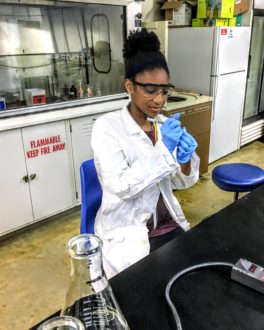November 15, 2018

More than 480 high school students spent the summer of 2018 exploring science, technology, engineering, and mathematics (STEM) at Unite sites on university campuses across the United States and in Puerto Rico. Unite is a four-to-six-week summer program, administered by the Technology Student Association (TSA), that supports priority population high school students in STEM areas.
Unite students
- learn from college students, faculty, and other professionals about STEM;
- gain confidence in their abilities to participate in STEM activities;
- solve problems through teamwork;
- apply STEM to the real world;
- examine and pursue STEM majors and careers.
These university partners will be hosting students in summer 2019:
| · Alabama State University | · Savannah State University, GA |
| · Fayetteville State University, NC | · Texas Southern University |
| · Florida State University | · University of Colorado, Colorado Springs |
| · Harris-Stowe State University, MO | · University of Iowa |
| · Jackson State University, MS | · University of Nevada |
| · Marshall University, WV | · University of New Mexico |
| · Michigan Tech | · University of Pennsylvania |
| · Montana Tech | · University of Puerto Rico, Rio Piedras |
| · Morgan State University, MD | · Virginia Tech |
| · New Jersey Institute of Technology |
Participant applications will be accepted beginning in February 2019 for the 2019 Unite summer program. Learn more at https://www.usaeop.com/program/unite/, or contact Hillary Lee at hlee@tsaweb.org.

Unite
Unite is a nationwide summer program for talented high school students in STEM.
More About UniteFind a Volunteering Opportunity
Visit our Program Volunteers page for a tool to find the best opportunity for you.
eCYBERMISSION Mini-Grant
The eCYBERMISSION Mini-Grant is intended to support teachers/program leaders as they implement eCYBERMISSION with their teams. Educators (formal and informal) of students in grades 6-9 are encouraged to apply.
